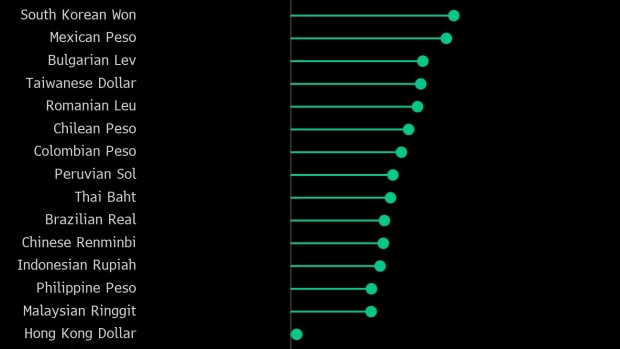Rand falls victim to South Africa’s ‘noise’ in dismal November
“Noise around the South African Reserve Bank and the gold and foreign currency account has been a distressing reminder of why many have got their fingers repeatedly burnt in times gone by,”

November has been good to South Africa’s rand for the past five years. This time is different.
South Africa’s currency is on track for an 0.3% decline against the dollar this month, one of only four emerging-market peers to weaken. MSCI’s developing nation currency index is set for a 2.9% November gain.
- Advertisement -
That’s in contrast to the rand’s performance since 2018, when it strengthened four out of five times in November for an average gain of 3.4%, according to seasonal data compiled by Bloomberg. That’s double the advance in the next best month, May.
- Advertisement -
While most emerging-market currencies have benefited from attractive carry returns and a weaker dollar, the rand has been weighed down by local “noise,” according to Robert Hoodless, FX and macro analyst at InTouch Capital.
That includes persistent power cuts and rail and ports constraints that are weighing on economic growth. In addition, international financial regulators placed South Africa on a “grey list” of countries that require increased monitoring, which has raised processing times and the cost of cross-border transactions, the South African Reserve Bank said in its Financial Stability Review on Wednesday.
- Advertisement -
And now a new risk has emerged for investors: the central bank confirmed last week that it is in talks with the National Treasury to find a way to tap foreign-exchange reserves to fund the country’s growing budget deficit.
“Noise around the South African Reserve Bank and the gold and foreign currency account has been a distressing reminder of why many have got their fingers repeatedly burnt in times gone by,” Hoodless said. “South Africa must compete for capital flows, and at this time others are winning out, leaving the rand at the mercy of the continued undercurrent of the poor domestic outlook.”
Net outflows from South African stocks and bonds in the year through November amounted to 98.1 billion rand ($5.2 billion), more than double the 43.4 billion of outflows in the comparable period last year, according to central bank data. Non-residents now hold only 25.4% of South African bonds, compared with almost 40% four years ago.
Source:norvanreports
- Advertisement -



